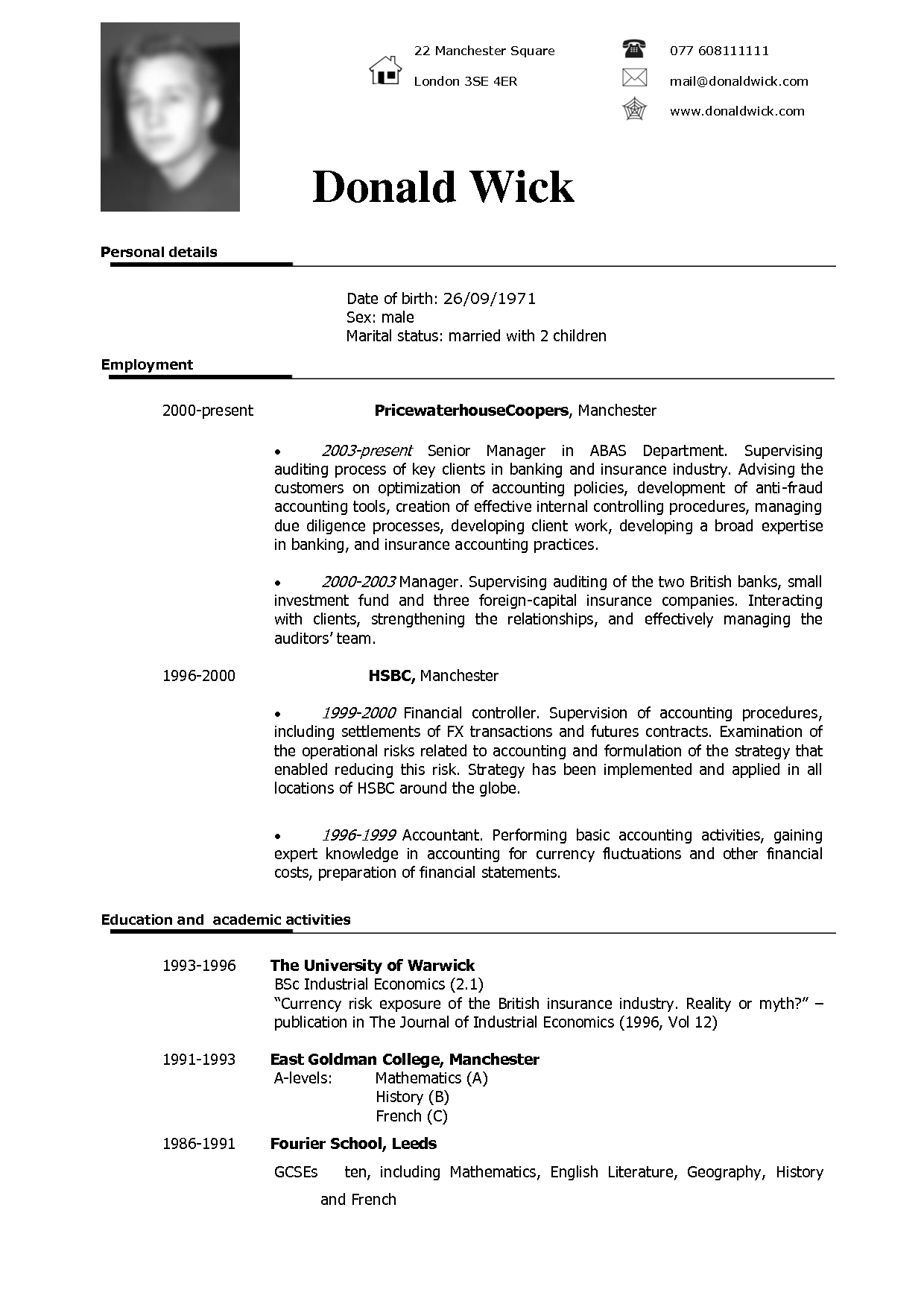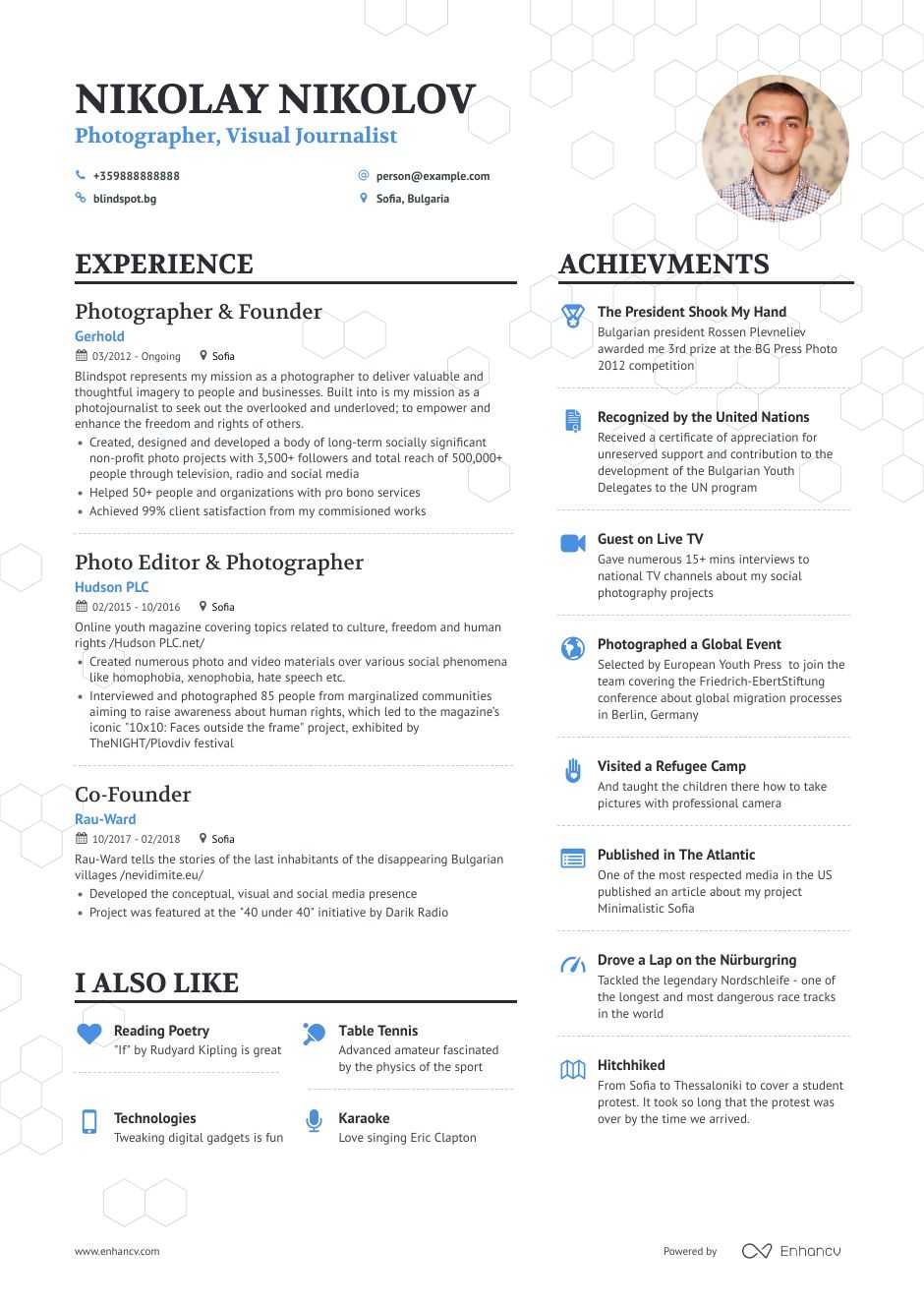
Mar 22, · CV and Resume Writing Tips. Whether you are writing a CV or a resume, there are a few helpful rules you should follow. It's important to show the hiring manager how you are qualified for the job, what you have to offer the organization, and why you'd be a terrific candidate to interview Oct 05, · A resume is kept short and brief (usually 1 page), whereas the CV is more comprehensive (it can go up to pages depending on your experience). Function - The CV is mainly used for academical purposes, such as applying for a research program, a Ph.D., or joining the staff of a university/5() Mar 20, · When to Use a CV Instead of a Resume In the United States, a curriculum vitae is used when applying for academic, education, scientific, or research positions. A curriculum vitae can also be used to apply for fellowships or grants. In Europe, the Middle East, Africa, or Asia, employers may expect to receive a curriculum vitae rather than a resume
Writing the Curriculum Vitae // Purdue Writing Lab
In this article, we discuss the differences between a CV and a resume, what to include in each one and when to use one versus the other. In contrast, a CV presents an in-depth history of your professional and academic credentials and accomplishments. Some of their main differences include the following:.
Since a resume includes your skills and qualifications for a specific role only, it should typically be just one or two pages. CVs are mostly used to apply for academic roles or programs, cv and resume writing, grants, fellowships and research or teaching positions.
You may have a CV if you are currently applying to or have graduated from a master's or doctoral program, or if you work as a professor or researcher at an academic institution. In South Africa, Australia and India, the terms CV and resume are often used interchangeably. But, in the US, a resume and CV are cv and resume writing distinctly different types of documents used for different purposes, cv and resume writing. Related: 6 Universal Rules for Resume Cv and resume writing. While there is no length requirement on a CV, cv and resume writing, most range from three to ten pages though some might be even longer.
Generally, the more experience you have, the longer your CV will be. Related: 10 Ways to Enhance Your CV. CV Format 1. Name and contact information 2. Summary 3. Professional history 4. Education 5. Skills 6. Awards 7. You might also include professional referencescoursework, cv and resume writing, fieldwork, descriptions of dissertations and a personal profile that lists your relevant skills and attributes.
Related: Curriculum Vitae CV Format Guide: Examples and Tips. A resume is a document that summarizes your career history, skills and education. Resume Format 1. Summary or objective 3. Professional history a. Company name b. Dates of tenure c. Description of cv and resume writing and achievement 4.
If you have little or no professional work experienceyou might list relevant internships, apprenticeships, volunteer work or personal projects instead. To determine which you should send, first consider the type of job, cv and resume writing. If you have a resume but not a CV or vice versait may be worthwhile to put one together. Related: How to Convert a Resume to a CV With Examples.
Indeed Home. Find jobs. Company reviews. Find salaries. Upload your resume. Sign in. profile Sign in. The differences between a resume and a CV. Geographic location. What is a CV? Image description CV Format 1. What to include on a CV. What is a resume? Image description Resume Format 1. What to include on a resume. When to use a resume vs. What kind of job are you applying for? Where is the company based?
Key ideas. The main differences between a resume and a CV are length, content and purpose. Resumes are typically one to two pages while CVs have no length restrictions but are typically between three and ten pages. Depending on your level of professional experience and the role, you may also include descriptions of cv and resume writing and personal projects or volunteer work.
A CV is a comprehensive, in-depth document presenting your relevant academic and professional achievements that are often used when applying for teaching or research positions. When deciding whether to submit a resume or a CV, consider the role and geographic location of the position. Related View More arrow right. Conflict Resolution Skills: Definition and Examples To resolve conflicts, you will often need to read both verbal and non-verbal communication cues, remain calm and control your own emotions, and understand the position of the other parties.
How To Write a Federal Resume If you are applying to a government position, use this guide to craft a clear and comprehensive federal resume.
Get a better job: Power Verbs for Resume Writing
, time: 15:22CV vs Resume - 5+ Key Differences [w/ Examples]

The main differences between a resume and a CV are length, content and purpose. Resumes are typically one to two pages while CVs have no length restrictions but are typically between three and ten pages. A resume is a concise, curated summary of your professional accomplishments that are most relevant to the industry job you’re applying for Mar 22, · CV and Resume Writing Tips. Whether you are writing a CV or a resume, there are a few helpful rules you should follow. It's important to show the hiring manager how you are qualified for the job, what you have to offer the organization, and why you'd be a terrific candidate to interview Mar 20, · When to Use a CV Instead of a Resume In the United States, a curriculum vitae is used when applying for academic, education, scientific, or research positions. A curriculum vitae can also be used to apply for fellowships or grants. In Europe, the Middle East, Africa, or Asia, employers may expect to receive a curriculum vitae rather than a resume
No comments:
Post a Comment